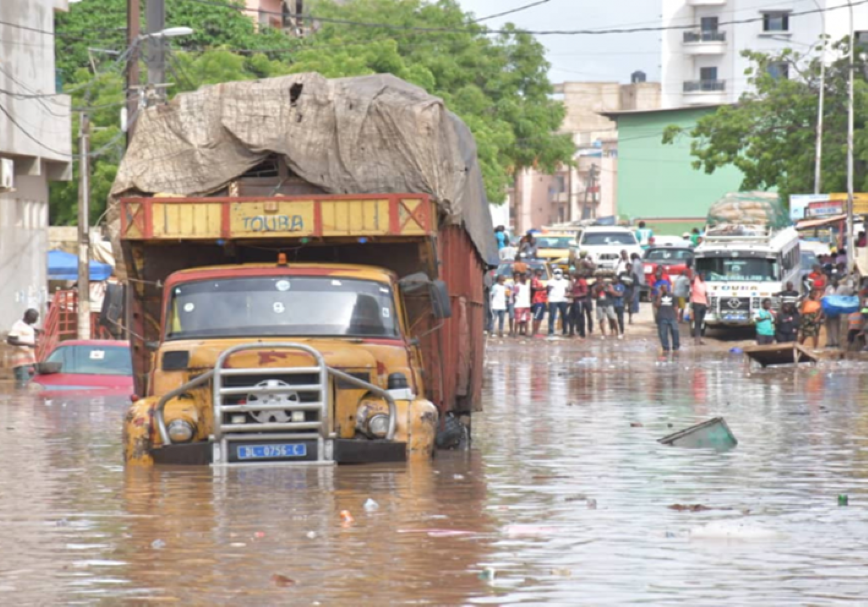
Senegal is grappling with severe flooding after heavy rains on August 20 and 21 inundated several cities, leaving significant material and human damage in their wake.
The events in Touba, Thiès, and Kaffrine have renewed calls from local authorities and civil society for urgent and sustainable responses to increasingly frequent storms.
The holy city of Touba faced some of the worst impacts.
Intense rainfall submerged neighborhoods including Nguiranène, Keur Niang, Ndamatou, Darou Khoudoss, Darou Marnane, and Dianatoul Mahwa.
Several structures belonging to the Senegalese National Sanitation Office (ONAS) collapsed, forcing hundreds of families to evacuate their homes and abandon possessions. Residents in the FÉTO sector voiced their frustration over the lack of swift intervention.
Serigne Habibou Mbacké, moral leader of Touba Ça Kanam, appealed to the State and humanitarian actors to “act without delay” to provide relief to the victims. He also warned of the risk posed by the subsidence of several retention basins, heightening concerns for the coming days.
Thiès also suffered extensive flooding. Neighborhoods such as Médina Fall, Keur Issa, Randoulène, Mbambara, and Thialy were submerged, forcing residents to erect makeshift barricades to protect their homes. Secondary roads became impassable, isolating communities and complicating emergency response.
Citizen groups in the region renewed their calls for better-coordinated municipal and technical services to manage such crises more effectively.
In Kaffrine, Mayor Abdoulaye Seydou Sow noted improvements in water management this year, thanks to cooperation between the state, technical services, and the municipality. Nonetheless, certain areas remain flooded due to ongoing construction under the Promovilles program.
The mayor stressed the urgent need to complete a retention basin near the railway, deemed strategic for safeguarding the city.
These local challenges reflect a broader national concern.
The Minister of Hydraulics is touring areas threatened by rising waters from the Senegal River. In Saint-Louis, he highlighted that several towns may need restructuring or relocation as part of the “10 towns” project, launched in 2018 and set to be relaunched.
The government’s proactive measures aim to anticipate and mitigate the effects of increasingly intense climate events across the country.



